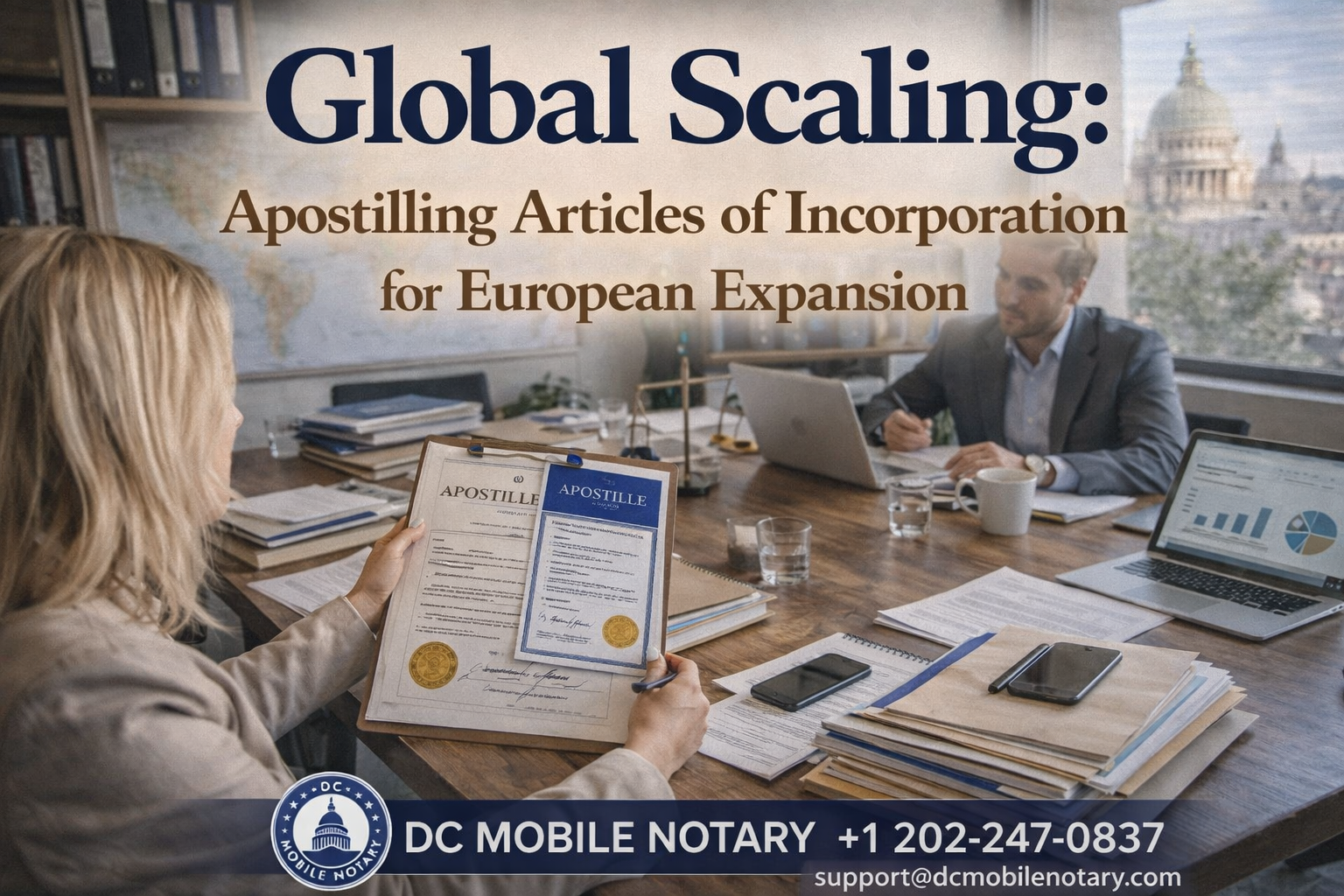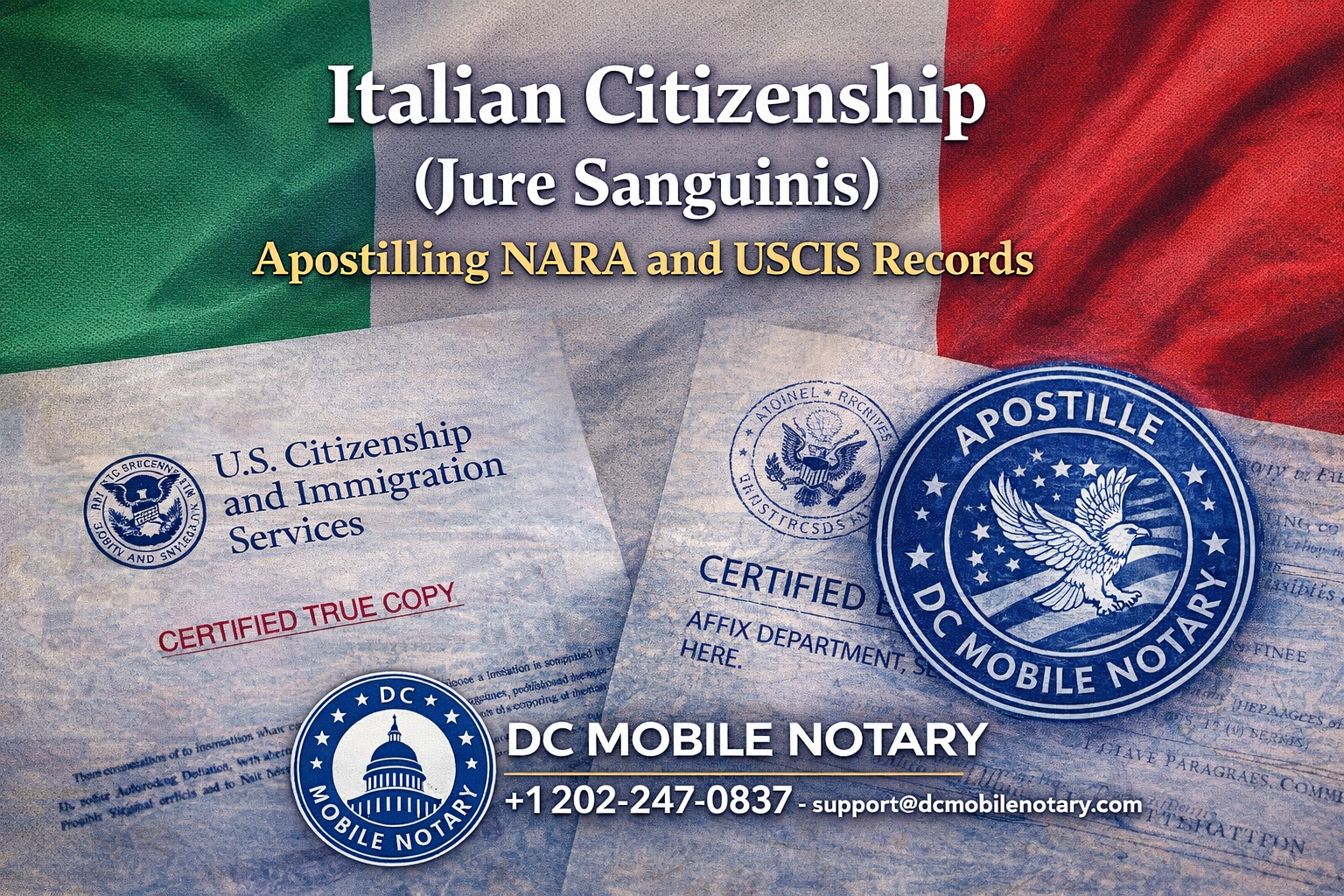How to Get an Apostille for Your Birth Certificate: A Step-by-Step Guide

May 19, 2024

Obtaining an apostille for your birth certificate is an essential process for anyone needing to use their birth certificate internationally. This comprehensive guide will walk you through the step-by-step process, ensuring that you understand each stage and comply with all necessary requirements. Whether you need the apostille for legal purposes, education, or travel, following these instructions will make the process smooth and straightforward.
What is an Apostille?
An apostille is a certification provided under the Hague Apostille Convention for authenticating documents for use in foreign countries. It certifies the authenticity of the signature, the capacity in which the person signing the document acted, and the identity of any seal or stamp affixed to the document. Essentially, an apostille ensures that your document is recognized as legitimate by foreign authorities.
Step-by-Step Guide to Obtaining an Apostille for Your Birth Certificate
Step 1: Obtain an Original Birth Certificate
To begin the apostille process, you need an original or certified copy of your birth certificate. The birth certificate must be issued by the state or local vital records office where the birth occurred. Ensure that the certificate is a long-form version, which includes more detailed information about the birth.
Tip: Some states have specific requirements for the issuance date of the birth certificate. For example, the state of Virginia requires that vital records such as birth certificates be issued within the past year for apostille purposes. Always check your state’s specific requirements before proceeding.
Step 2: Verify State Requirements
Each state in the U.S. has its own set of requirements and procedures for obtaining an apostille. It is crucial to verify the specific requirements of the state where your birth certificate was issued. This includes ensuring that your document meets the state's criteria for authentication and understanding any unique submission guidelines.
Step 3: Authenticate Your Birth Certificate
Authentication is the process of verifying the document before it can receive an apostille. For a birth certificate, this usually means getting it authenticated by the Secretary of State in the state where the certificate was issued. Here are the general steps:
- Prepare Your Document: Ensure your birth certificate is in good condition and meets any state-specific requirements.
- Complete Authentication Request Form: Many states require you to fill out a request form for authentication services. This form can typically be found on the Secretary of State's website.
- Submit Your Document: Mail or deliver your birth certificate, along with the completed request form and any applicable fees, to the Secretary of State's office. Some states may offer expedited services for an additional fee.
Step 4: Obtain the Apostille
Once your birth certificate has been authenticated, the Secretary of State will affix an apostille to the document. The apostille itself is a certificate that confirms the authenticity of the document and the authority of the official who signed it.
Additional Tips and Considerations
Check State Requirements
As mentioned earlier, each state has its own specific requirements and processes for obtaining an apostille. Some states may have additional steps or require specific forms to be completed. Always check with the Secretary of State’s office in the state where your birth certificate was issued to ensure you follow the correct procedure.
Consider Timing
The process of obtaining an apostille can take several weeks, depending on the state and the time of year. If you need your apostille urgently, inquire about expedited processing options. Be aware that these services often come with additional fees.
Prepare for International Use
If you are obtaining an apostille for use in a foreign country, ensure that the country is a member of the Hague Apostille Convention. If the country is not a member, you may need to follow a different process, such as obtaining a certificate of authentication from the U.S. Department of State and the embassy or consulate of the destination country.
Keep Copies
Make several copies of your birth certificate and the apostille. While the apostille itself is only valid for the original document, having copies can be helpful for your records and in case you need to provide additional proof of the document's authenticity.
Common Questions and Issues
What if My Birth Certificate is Damaged or Illegible?
If your birth certificate is damaged or illegible, you will need to obtain a new certified copy before proceeding with the apostille process. Contact the vital records office in the state where you were born to request a new copy.
Can I Apostille a Copy of My Birth Certificate?
No, only original or certified copies of birth certificates can be authenticated and receive an apostille. Photocopies or notarized copies are not acceptable.
What If My State Doesn’t Issue Apostilles?
If your state does not issue apostilles, you will need to obtain a certificate of authentication instead. This process involves similar steps and will allow your document to be recognized internationally.
Conclusion
Obtaining an apostille for your birth certificate is a crucial step for using the document internationally. By following this step-by-step guide, you can navigate the process with confidence and ensure that your document is properly authenticated. Always check the specific requirements of the state where your birth certificate was issued and allow adequate time for processing. For additional assistance with obtaining an apostille, contact a professional service or the Secretary of State's office in your state.
Contact Information
For notary and apostille services, contact DC Mobile Notary at 202-247-0837 or fill out the form on DC Mobile Notary's website.
By understanding and following these steps, you can efficiently obtain an apostille for your birth certificate, ensuring that your document is recognized and accepted for international use.

‹ Previous
Next ›

Apostilling Articles of Incorporation for International Use

February 17, 2026

Italian Citizenship (Jure Sanguinis): Apostilling NARA & USCIS Records

February 13, 2026





